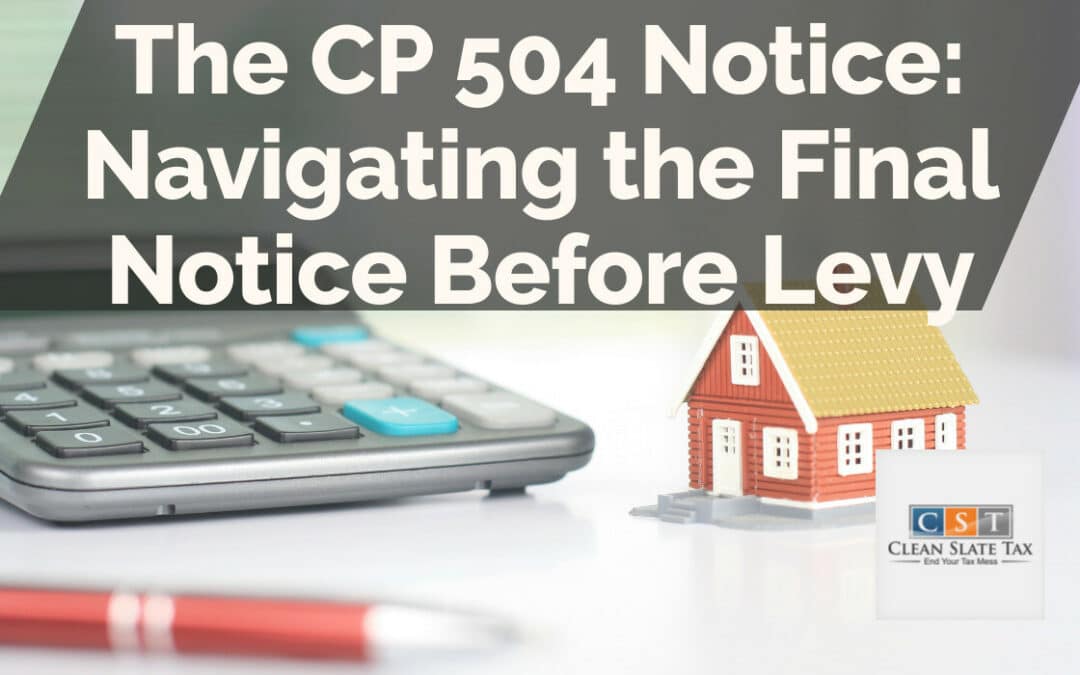The Internal Revenue Service (IRS) has various steps in place to ensure that taxpayers fulfill their obligations promptly. The CP 504 Notice is one such step in this process. Considered as one of the final attempts of the IRS to claim due payments, the CP 504 Notice signifies an urgent call to action. This article aims to provide readers with information about what the notice entails, the course of action it suggests, and some frequently asked questions around it.
What is the CP 504 Notice?
The CP 504 Notice, also referred to as the ‘Final Notice Before Levy,’ is a final reminder from the IRS before they initiate the process of obtaining your state tax refund. The notice is sent out when previous reminders have been unfruitful in resolving outstanding tax dues.
When Does the IRS Issue a CP 504 Notice?
The IRS issues a CP 504 Notice when the taxpayer has failed to respond to or address previous notices regarding unpaid tax amounts. It serves as the last reminder before the IRS takes more severe action in claiming the unpaid taxes.
What Does the CP 504 Notice Mean for Taxpayers?
The issuance of a CP 504 Notice spells urgency for the taxpayer, as it means that the government could seize your state tax refund if immediate action is not taken. It could also lead to a lien being placed on your property, diminishing the chance of securing loans or selling property. Therefore, the CP 504 Notice is a significant point in tax proceedings that must be dealt with promptly.
How to Respond to a CP 504 Notice
The appropriate response to such a notice should ideally involve immediate payment of the tax dues. This is often the easiest way to prevent further action by the IRS. However, if the tax dues can’t be paid in full, an installment agreement or an Offer in Compromise can be considered. Always remember, the response should be swift, well-planned, and comprehensive.
Frequently Asked Questions
- What if I can’t pay the total amount of overdue taxes?
An installment agreement with the IRS may be an option, where you can pay your tax debt over time. This option requires certain qualifications and approval from the IRS.
- What happens if I ignore the CP 504 Notice?
Ignoring the notice could lead to penalties, such as seizure of state tax refund, levy on your assets or wages, or a federal tax lien on your property.
- Should I seek professional help?
Yes. Navigating tax proceedings can be complex. It might be beneficial to consult with a tax professional or attorney to protect your interests better.
Taking the Right Steps
In conclusion, the CP 504 Notice represents a crucial phase in the IRS tax collection process, where the taxpayer must take swift action. Although it triggers a sense of urgency, an understanding of what the notice signifies and how to respond appropriately can help alleviate the stress. Whether you decide to fulfill the unpaid tax balance or negotiate an alternative route with the IRS, understanding each step and choosing the most appropriate strategy will be the key to successfully navigating this scenario.





